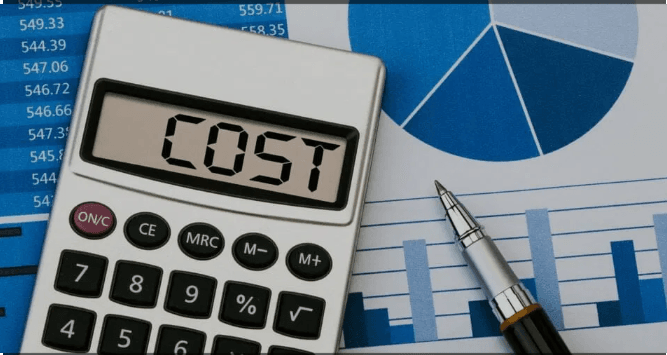Discover the Hidden Costs of Closing: Master Your Commercial Property Purchase!
When buying a commercial property, hidden closing costs can catch you off guard. Learn how to identify and manage these costs to make your purchase smoother and smarter.

Buying a commercial property can be an exciting adventure, but it’s essential to understand that the path to purchase is paved with costs that aren’t always visible at first glance. Whether you're looking to invest in a storefront, an office space, or a large industrial complex, being aware of the hidden costs of closing can help you navigate the process smoothly. Let’s dive deep into what these costs may be and how you can prepare for them.
One of the first things to consider in your commercial property purchase is the closing costs. These are additional expenses that occur when the title of the property is transferred from the seller to you, the buyer. While many people are familiar with typical costs like down payments and loan origination fees, closing costs can sometimes catch buyers off guard. They can range from a few thousand to tens of thousands of dollars, depending on the price of the property and the specific terms of the deal.
A significant component of closing costs is the title insurance. This protects you and your lender from potential disputes over the ownership of the property. The cost of title insurance can vary based on the location and value of the property. It's a good idea to ask your mortgage loan officer about what title insurance will cover and its total costs, so you’re fully informed before you reach the closing table.
Another essential cost to consider is the appraisal fee. An appraisal is necessary to determine the value of the property and ensure that the lender is not giving you more money than the property is worth. This process can cost several hundred dollars and can sometimes take a little time to complete, depending on the property type and its condition. Be sure to budget for this fee early on, as it is often required upfront.
Don’t overlook inspection costs. Before closing on a commercial property, it’s wise to conduct a thorough inspection. This might include a general property inspection, environmental assessments, and even specialty inspections, such as those for pests or structural issues. The costs for these inspections can add up, but they are crucial for uncovering any potential problems that could affect the property’s value or your plans for it.
Let’s talk about recording fees. These fees are charged by local governments to officially record the change of property ownership. Depending on where you’re buying, recording fees can vary widely. It’s typically a small percentage of the property’s purchase price, but it’s essential to add this to your list of anticipated expenses.
Property taxes are another key factor to consider. When purchasing a commercial property, you’ll need to be aware of the current property tax rates and any potential increases after your purchase. You might also be responsible for prorated taxes at closing. This means that you’ll need to pay the seller for the portion of the tax year they have already occupied the property. It’s essential to ask your mortgage loan officer how these taxes will work in your particular situation.
Additionally, you may incur costs associated with the loan itself. These can include loan processing fees, underwriting fees, and even points, which are upfront interest fees that can lower your overall interest rate. Understanding these fees and how they fit into your overall budget is crucial. Your loan officer can help clarify each of these costs and their relevance to your financial goals.
Another hidden cost to consider is insurance. Once you purchase a commercial property, you’ll need to secure insurance to protect it. This includes property insurance and liability insurance. Depending on the type of business you plan to operate, you might also need specialized insurance coverage. It’s wise to factor these costs into your overall budget to avoid surprises down the line.
Moreover, think about the costs related to financing. In commercial real estate, it’s common for lenders to require reserves, which are funds set aside to cover unexpected expenses. These could include maintenance costs, unexpected repairs, or even vacancies. Having a financial cushion can make a significant difference in your ability to manage the property effectively.
Let’s not forget about closing day costs. On the day of closing, you may encounter additional fees that need to be paid. This could include courier fees, document preparation fees, and even notary fees. These might seem small, but they can add up quickly. Being prepared with cash or a certified check on closing day is essential to ensure everything goes smoothly.
Additionally, if you’re planning to make any renovations or improvements to the property after purchase, be sure to account for those costs as well. It’s always a great idea to have a plan for any modifications you want to make and to budget accordingly. This way, you won’t find yourself short on funds when it’s time to bring your vision to life.
Now that you are aware of these hidden costs, it’s essential to have an open dialogue with your mortgage loan officer. They can help break down all the costs associated with your commercial property purchase and guide you through the process. It’s important to ask questions and clarify any uncertainties you may have.
As you embark on this exciting journey of purchasing a commercial property, remember that knowledge is your best ally. Understanding the hidden costs of closing will empower you to make informed decisions. By preparing for these expenses and seeking guidance, you can ensure a smoother transition into ownership.
If you have more questions or want to delve deeper into your specific needs regarding your commercial property purchase, don’t hesitate to reach out. We’re here to help you navigate this process and achieve your real estate goals!